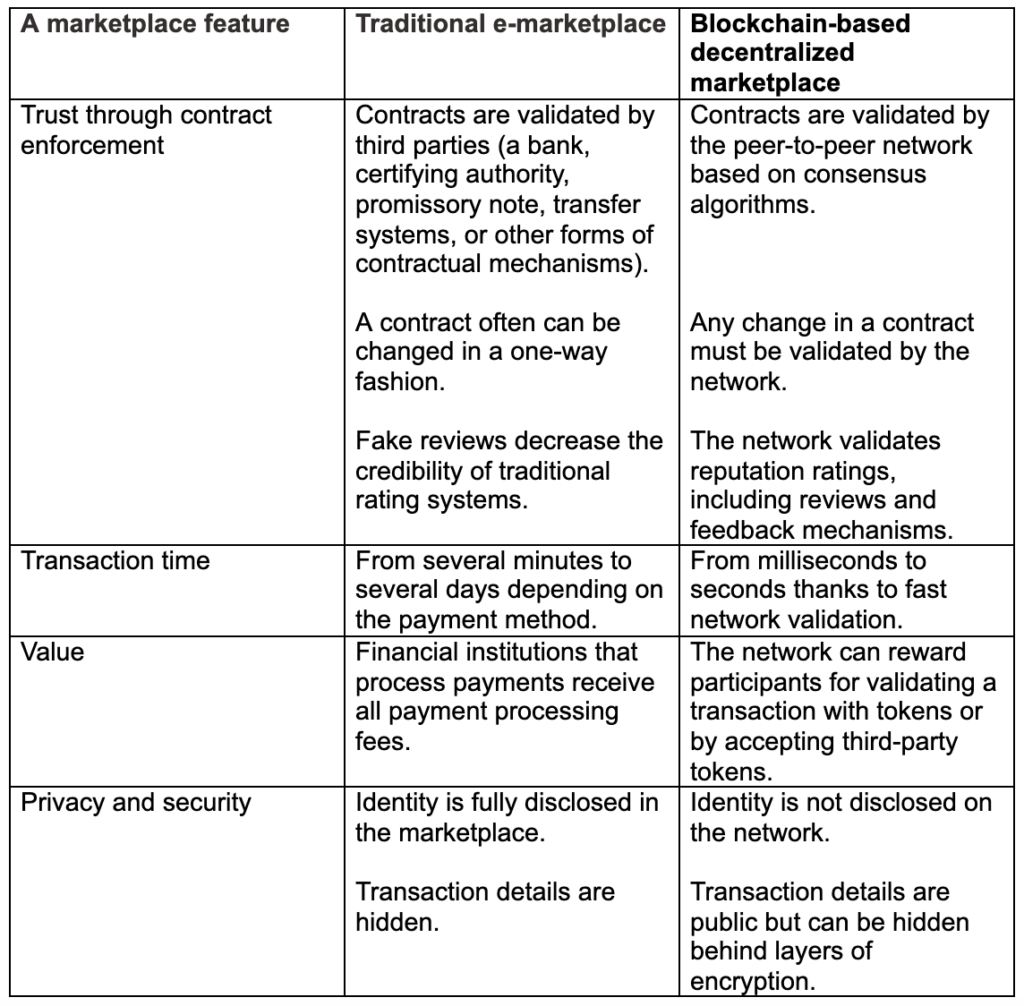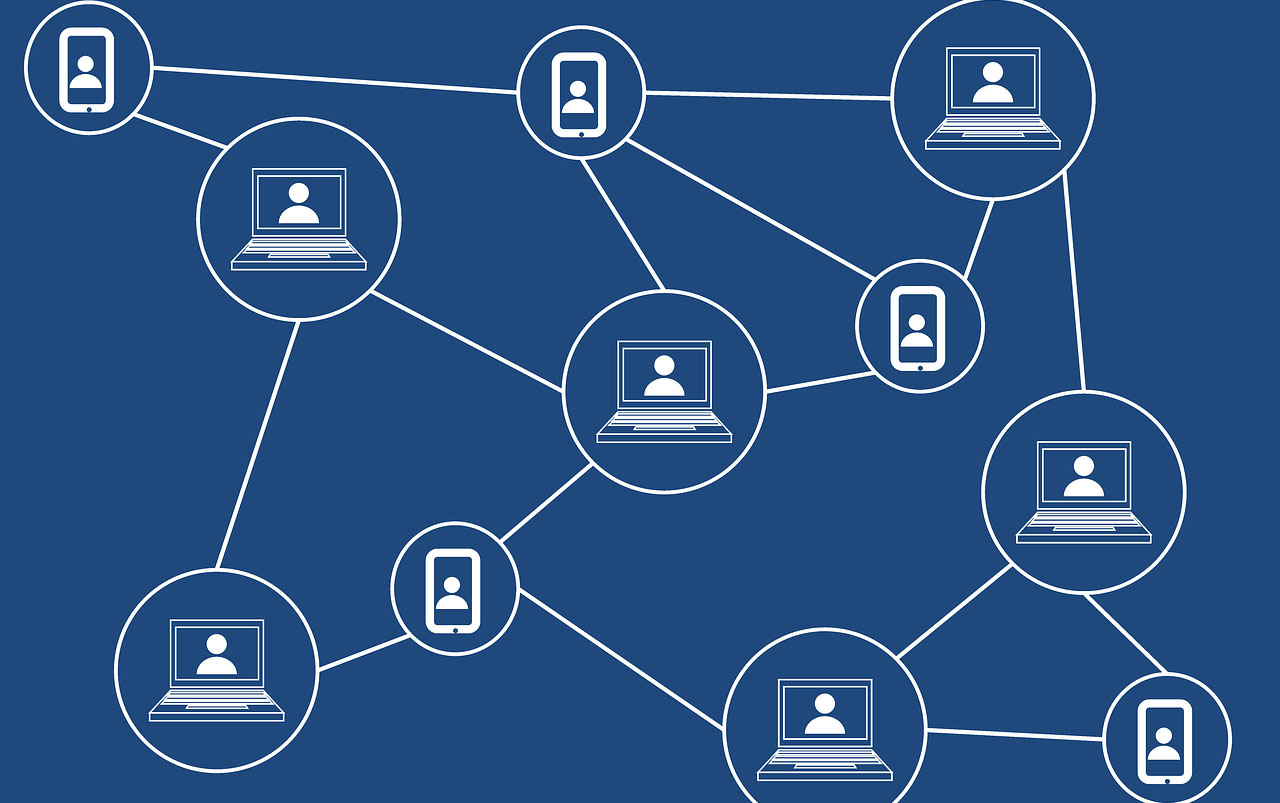Blockchain can be used in different domains, such as fintech, healthcare, manufacturing, tourism, real estate and government. It removes intermediaries from many business workflows. This helps organizations optimize costs and gain additional competitive advantages. Let’s go through blockchain use cases beyond bitcoin.
Blockchain-based supply chains
In a traditional seafood supply chain, for example, it is hard to trace illegal practices and product mislabeling. There are too many parties involved, with incomplete transparency about their actions.
Food safety and quality issues lead to parties mistrusting each other, which adds to the industry’s economic instability. Sustainability is also a growing problem, because more customers demand to know where their food comes from.
To solve these problems, blockchain consultants suggest implementing the combination of IoT and blockchain. The IoT part consists in tagging seafood items with sensors that gather and translate their location data in real time. Recorded on a blockchain, this data becomes available to all members of that blockchain, allowing them to track the food origin.
Thanks to blockchain, the supply chain can become transparent and trustworthy. It can also become faster and cheaper because of the automation of product location and status updates.
The same approach can be followed with other highly regulated products (such as pharmaceuticals) or high-value resources (such as gemstones and precious metals).
Everledger, a startup that recently secured $20 million in funding, created a blockchain use case in which each asset is assigned a digital fingerprint and tracked throughout the supply chain. This system provides all stakeholders with an immutable, forgery-proof record of each product’s origin.
Distributed autonomous marketplaces
One of the main advantages of blockchain is its decentralized structure. That’s why in the future some blockchain applications may well underpin autonomous distributed marketplaces regulated by their users rather than corporations.
See also: Blockchain: Golden Opportunity in LatAm
Let’s consider the possibilities blockchain can bring to marketplace management. In the table below, there are marketplace aspects that a blockchain model would redefine:

An example of a blockchain-based marketplace is Australian startup CanYa. The company tries to differentiate itself from the competition by offering more transparency and trust. CanYa’s founders guarantee that paying clients will be satisfied with the quality of provided services, while service providers will be paid in full and on time. All this is achieved thanks to blockchain.
The startup also launched iOS and Android apps processing both fiat cash and peer-to-peer cryptocurrency payments. Their own cryptocurrency—CanYaCoin—is created to be at the center of the platform. It is designed into the innovative hedged escrow contracts that combat the notorious instability of cryptocurrencies.
Origami Network takes a different approach by offering developers a platform where they can create their own peer-to-peer marketplaces. Origami developed a set of blockchain-based standards and protocols, which businesses can use to create their own online decentralized shopping platforms and enjoy all the perks of the distributed ledger technology.
The emerging smart marketplaces prove that blockchain use cases are not just limited to technological advancements but will also most definitely bring socioeconomic change through decentralized autonomous organizations, much like the internet did.
See also: Blockchain in Insurance: 3 Use Cases
Customer care, IP protection and beyond
If we fantasize a bit and extend what startup SimplyVital Health is doing with its ConnectingCare platform for tracking post-discharge patient care, similar advancement can be made in the field of tracking customer care and the quality of after-services using IoT data on blockchain. This way, you don’t have to worry about an employee forgetting about a tweet or a message from a disgruntled client.
Similarly, music and photography publishing is moving to blockchain, with products like Ujo Music that allow users to protect all rights to their creations by simply publishing them, without the notorious intermediaries. It’s safe to say the same is possible for tracking all types of intellectual property and payments to creative professionals to secure their rights.







